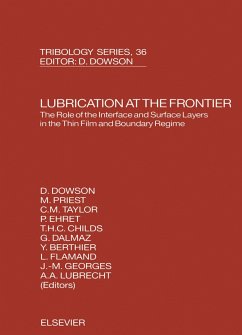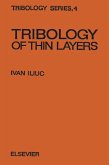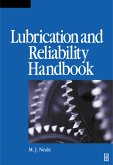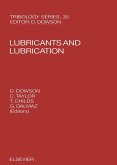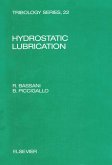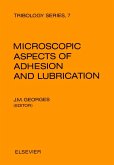The 25th Leeds-Lyon Symposium on Tribology was held at the Institut des Sciences Appliquées de Lyon, from 8-11th September, 1998. Its central theme was, "Lubrication at the frontier: the role of the interface and surface layers in the thin film and boundary regime". This topic was chosen because it represents an important evolution of the research field. The Symposium opened with a keynote address entitled "Role of surface-anchored polymer chains in polymer friction" which described the processes taking place at the interface between "solid" and "liquid". The keynote address was followed by two invited lectures. Firstly, "Fuel efficient engine oils, additive interactions, boundary friction and wear" presented the industrial point of view on lubricant formulation and engine testing and its evolution. The second lecture was entitled "For establishment of a new EHL theory" and stressed the need to extend the current EHL theory. Beginning in 1974, The Leeds-Lyon Symposia have now covered a wide range of topics. The essential aim each year is to select a topic of current interest to tribologists and to contribute to further the advance of knowledge in selected fields.
Dieser Download kann aus rechtlichen Gründen nur mit Rechnungsadresse in A, B, BG, CY, CZ, D, DK, EW, E, FIN, F, GR, HR, H, IRL, I, LT, L, LR, M, NL, PL, P, R, S, SLO, SK ausgeliefert werden.

